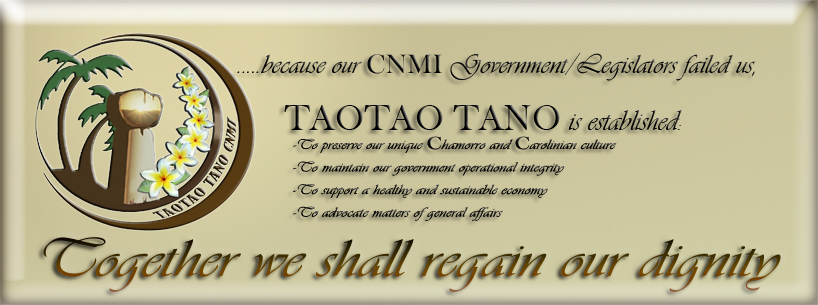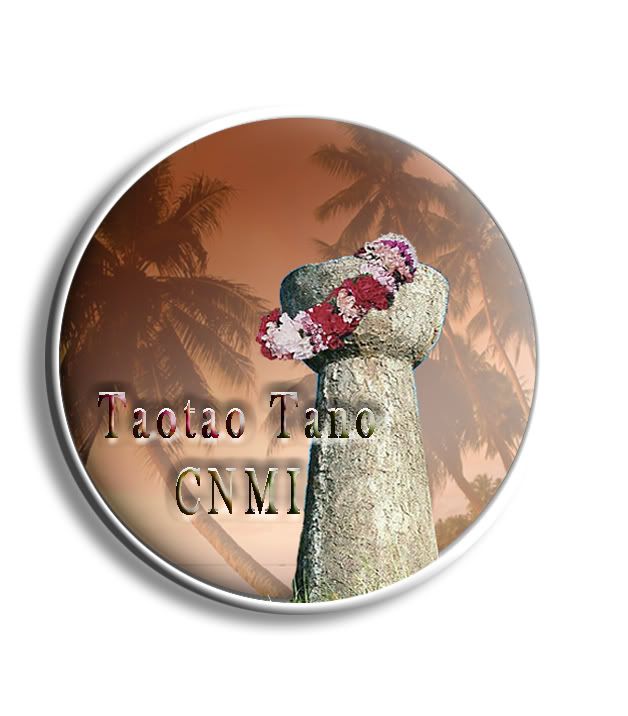Friday December 14, 2007 By Gemma Q. Casas Variety News Staff
GOVERNOR Benigno R. Fitial says the United States, known as the land of the free and opportunities, seems to be applying “socialism” to the Northern Marianas at the expense of its indigenous people.
He made the statement in the wake of the U.S. House of Representatives’ move to pass legislation ending the CNMI governor’s control over local immigration.
“This bill would impose a federal labor system on the commonwealth which is nothing more, or less, than an effort to enforce a ‘command economy’ system on the Northern Marianas. In another day, it would be called socialism,” said the governor in a statement.
“It entrusts to government officials the responsibility for allocating laborers to particular industries and, within industries, to particular companies. These economic decisions should not be made — and cannot be made effectively — by government officials,” he added.
The U.S., a melting pot of people from different ethnic backgrounds, prospered because of its open market policy, said the governor.
“The United States economy has prospered because of our reliance on a market economy – and the forces of supply and demand. I regret that the members of the U.S. House committee rejected these basic principles,” he said.
He urged the U.S. Senate to wait for the results of the General Accountability Office’s economic study, which is expected to be released in May 2008, before acting on H.R. 3079.
The U.S. Department of the Interior separately funded an economic study on the CNMI. The report prepared by the Saipan-based financial firm Burger & Comer is due to be released next month.
The governor said federalizing the islands’ immigration system may further destabilize its tourism-based economy.
“Economic experts and business leaders say the number one tool for revitalizing our economy is retaining this particular competitive advantage. Local control over immigration has enabled us to develop new sources for our tourism business,” he said.
“It gives us the needed flexibility for new investment for educational institutions, new hotels or resorts. This legislation would take that authority away from us, and threaten thousands of jobs and billions of dollars in potential new investment,” he added.

RETIREMENT FUND ISSUE
FEDERAL FUNDS
FRAUD MARRIAGES
.
.
Thursday, December 13, 2007
Friday, December 7, 2007
Cohen says cost of living on islands high due to limited private sector participation
mv- 120707
THE federal official in charge of overseeing assistance and programs for American insular areas says the cost of living in island communities is high due to limited private sector participation.
David Cohen, the U.S. Interior Department’s deputy assistant secretary for insular affairs, was the keynote speaker at the Annual Conference of the Island Government Finance Officers’ Association held on Tuesday in Honolulu, Hawaii.
He said “in most of the insular area economies, there is an unsustainable imbalance between the public and private sectors.”
A strong private sector propels a healthy economy, he said. This way “jobs are created and taxes are collected to fund essential services for the public.”
But many islands do not have economies dominated by the private sector. “In many island economies, this model is turned on its head: The economy is dominated by the public sector. Since the public sector generally is a consumer and not a producer of wealth, this type of economy can only be sustained with outside subsidies. I have referred to these island economies as being “upside down in the middle of the ocean.” They will have to get right-side up in order to get their heads above water,” said Cohen.
However, the odds are against the island communities because of their remote locations and susceptibility to extreme weather conditions. “These communities tend to have small populations, few resources and remote locations. That means they are heavily dependent upon transportation systems to bring people and goods to and from their islands, and that transportation is likely to be significantly more expensive than it is in more populated areas. This, in turn, tends to make everything else on the island more expensive. The cost of doing business is therefore high.”
THE federal official in charge of overseeing assistance and programs for American insular areas says the cost of living in island communities is high due to limited private sector participation.
David Cohen, the U.S. Interior Department’s deputy assistant secretary for insular affairs, was the keynote speaker at the Annual Conference of the Island Government Finance Officers’ Association held on Tuesday in Honolulu, Hawaii.
He said “in most of the insular area economies, there is an unsustainable imbalance between the public and private sectors.”
A strong private sector propels a healthy economy, he said. This way “jobs are created and taxes are collected to fund essential services for the public.”
But many islands do not have economies dominated by the private sector. “In many island economies, this model is turned on its head: The economy is dominated by the public sector. Since the public sector generally is a consumer and not a producer of wealth, this type of economy can only be sustained with outside subsidies. I have referred to these island economies as being “upside down in the middle of the ocean.” They will have to get right-side up in order to get their heads above water,” said Cohen.
However, the odds are against the island communities because of their remote locations and susceptibility to extreme weather conditions. “These communities tend to have small populations, few resources and remote locations. That means they are heavily dependent upon transportation systems to bring people and goods to and from their islands, and that transportation is likely to be significantly more expensive than it is in more populated areas. This, in turn, tends to make everything else on the island more expensive. The cost of doing business is therefore high.”
Subscribe to:
Posts (Atom)

